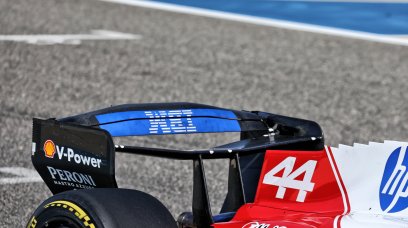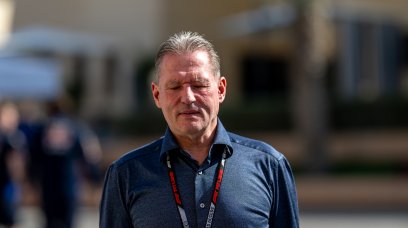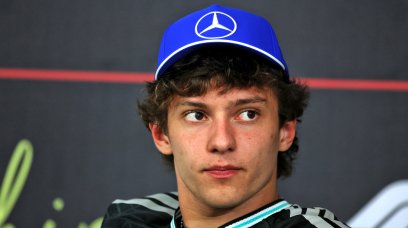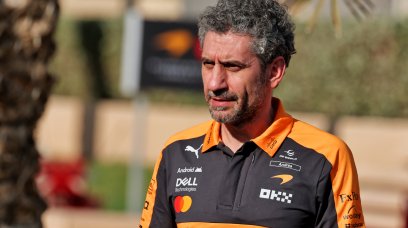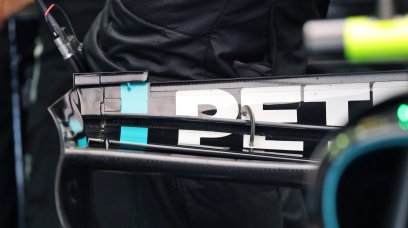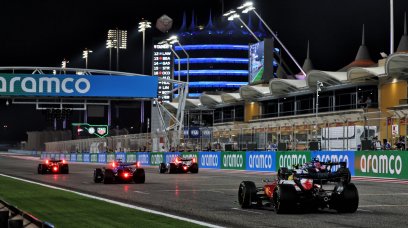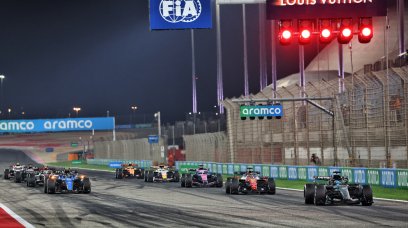Nobody seems capable of making life difficult for Max Verstappen and Sergio Perez at Red Bull as it stands following a dominant start to the season that has somewhat replicated the conclusion of 2023. F1 has typically had a top three in recent years - Mercedes, Ferrari and Red Bull. But Aston Martin joined this list last season with a quick-fire start. McLaren also found pace to create a clear top five, with there now a division existing between the top and bottom halves of the Constructors' standings. Can any of the remaining four top-five teams take the fight to Red Bull? RacingNews365 takes a look at how those closest to the Milton Keynes-based outfit have started the new season, starting with Aston Martin.
Last season, Aston Martin emerged as Red Bull's early nearest challenger. Fernando Alonso secured six podiums in the opening eight races as the Red Bull-inspired AMR23 hit the track flying. But when the in-season development race got underway, Aston Martin lagged behind, slumping back behind Mercedes, Ferrari and McLaren to finish fifth in the Constructors' standings. A late upgrade package did get the car back on track and provided optimism for a strong start to the new campaign. That optimism has so far been misplaced, with Alonso impressing in qualifying in both races so far only for the team's race pace to let it down over a grand prix distance. Lance Stroll's crash early on in Jeddah took away the chance of a second double top-10.
Aston Martin has to compete with McLaren and Mercedes for now
Within the team, the conclusion after two races is clear: Ferrari and Red Bull are a bridge too far, and that it is "two-to-three-tenths" per lap in the race behind McLaren and Mercedes, as Alonso estimates. So for now, Aston Martin is fifth in the pecking order, but there are still 22 races to come. Aston Martin team principal Mike Krack backed Alonso's assessment: "I would love to disagree, but that is the picture at the moment. If you argue that we are in a group with McLaren and Mercedes, then it is up to us to make sure we end up at the front of that group. Only then can we start looking beyond that. "We have a good base, but we have only had two races. We need to understand our car better in different conditions. Besides, the two races were in the evening, so we are still going to learn a lot of new things." Alonso, who is never afraid of detailing exactly how he's feeling, openly conceded the AMR24's pace difference over one-lap and in race trim has been a shock. "We are surprised by the performance of this car over one lap," said the Spaniard. "Our starting position on the second row is not our natural position. In Bahrain, we quickly fell back to fifth position (in terms of the pecking order) in the race. We are competitive over one-lap and the car responds well, but we are worried about the race. That's a trend."
Why is Aston Martin better in qualifying?
Tom McCullough, Performance Director of Aston Martin, explains: pace in the race vs. qualifying "We dived deeper into it after the Bahrain GP. Historically, as a team we are better in the race than qualifying, but this car is aerodynamically very different from its predecessor. We are still learning about the car and how to get the most out of it. We're actually a little surprised that we're better in qualifying." The three main factors that play a role "There are three big set up elements that you can play with. In qualifying, the car is much faster because it has less fuel. With the ride height, we can optimise the car for the race or for qualifying. How you use the tyres can also be decisive. Certain adjustments around the tyres can make for a better qualifying, but also a lesser race. Finally, you have the efficiency of the car, the drag levels, how much wing you use, things like that." New tyres can mask a lot "A new set of tyres masks a lot of the car's characteristics. You can have an F1 car with tricky balance in the corners, but with a new set of tyres and little fuel on board, a driver often manages to get by if the balance is somewhat okay. If you run a 50-lap race, with warmer and more worn tyres, then you're much more affected by the small changes to the set-up. What we're really trying to do is focus on the balance of the car at the time when there's a lot of fuel on board, to put less strain on the tyres," McCullough said.
Optimism
"We are very positive for the upcoming races," insisted Krack, despite the struggles. "In Saudi Arabia, we already made some small updates and more are coming in the coming weeks. We want to keep developing this car continuously and not wait too long. All the upcoming races will have the car updated. "The lessons we learned last year were sometimes very tough, but very, very important. Based on those lessons, we have changed some things in our processes, in order to always be 100 percent sure of what we are doing." The question, however, is whether a firm conclusion can already be drawn about the balance of power in the F1 field after two races. Krack doesn't think so: "I already said after the test days: let's wait a few races to see where we stand. Bahrain is an outlier, we have seen that in the past. When we return from the race in Australia, we'll have a good idea of everyone's pace."
Most read
